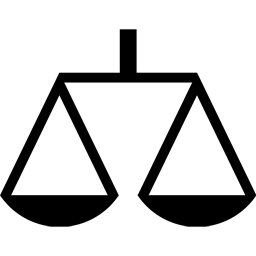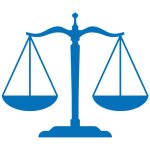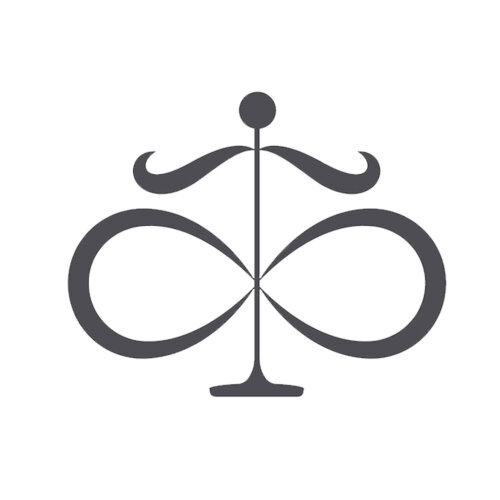Best Banking & Finance Lawyers in Dakar
Share your needs with us, get contacted by law firms.
Free. Takes 2 min.
List of the best lawyers in Dakar, Senegal
About Banking & Finance Law in Dakar, Senegal
Dakar, the vibrant capital city of Senegal, serves as the country’s financial hub. As a member state of the West African Economic and Monetary Union (UEMOA), Senegal’s banking and finance sector is regulated under both national laws and regional frameworks. The banking landscape is shaped by the Central Bank of West African States (BCEAO), which oversees monetary policy and banking regulations for the eight UEMOA countries, including Senegal. The legal system in Senegal is based on French civil law, which influences financial contracts, dispute resolution, and regulatory compliance. Whether you are an individual, an entrepreneur, or a large corporation, understanding the fundamentals of banking and finance law is crucial to protect your interests and ensure compliance with local and regional regulations.
Why You May Need a Lawyer
Banking and finance law in Dakar is complex and subject to both local and regional oversight. Here are common situations where you may require legal help:
- Negotiating loan agreements or financial contracts with banks and other financial institutions
- Resolving disputes related to bank accounts, transactions, or unauthorized deductions
- Compliance advice for regulatory and reporting requirements under Senegalese and UEMOA rules
- Structuring corporate financing or investment deals
- Guidance on foreign exchange regulations and cross-border transactions
- Asset recovery or debt collection proceedings
- Legal support during mergers, acquisitions, or restructuring involving credit facilities
- Handling issues related to electronic banking, digital payments, or fintech services
A qualified banking and finance lawyer in Dakar can help interpret complex regulations, negotiate favorable terms, and resolve conflicts in your favor.
Local Laws Overview
Banking and finance activities in Dakar are governed by a combination of Senegal’s national laws and UEMOA regulations. Notably:
- Central Bank Oversight: The BCEAO regulates banks and financial institutions, setting rules for licensing, liquidity, and risk management.
- Banking Law: National laws govern the operations of commercial banks, including customer protection, confidentiality, and contract enforcement.
- Foreign Exchange Controls: Rules exist for repatriation of profits, payments abroad, and currency conversion, requiring regulatory approval in certain cases.
- Credit and Lending: Loan agreements must comply with interest rate limits and consumer protection standards established by both national and UEMOA laws.
- AML/CFT Compliance: Anti-money laundering and combating the financing of terrorism regulations require strict due diligence by banks and reporting of suspicious transactions.
- Corporate Finance & Securities: The Regional Stock Exchange (BRVM) operates for securities trading, and raising public capital involves compliance with regional securities regulation.
- Dispute Resolution: Banking disputes are handled by local courts, with specific commercial chambers and the option of arbitration or mediation in some cases.
Frequently Asked Questions
What do I need to open a bank account in Dakar?
To open an account, you typically need a valid identification (passport or national ID), proof of address, and sometimes proof of income. Requirements can vary between banks and for corporate accounts.
How is banking regulated in Senegal?
Banking is mainly regulated by the BCEAO for UEMOA countries, along with national legislation. All banks must be licensed and comply with capital, operational, and reporting standards.
Can foreign nationals or companies open accounts and invest in Dakar?
Yes, foreign nationals and companies can open bank accounts and invest, but may face additional requirements under foreign exchange and anti-money laundering regulations.
What protections are available for bank customers?
Banking law provides for confidentiality of accounts, clear contract terms, and dispute resolution mechanisms. Consumer protection laws also apply to loan agreements and fee disclosures.
What are the rules for obtaining loans and credit?
Applicants must provide proof of income, sufficient collateral, and meet the bank’s risk assessment standards. Interest rates and terms must comply with consumer protection laws and regulations set by the BCEAO.
How are banking disputes resolved?
Disputes may be resolved through negotiation, mediation, or formal legal proceedings in civil or commercial courts. Some banks have internal complaints procedures as well.
Are there special rules for online or mobile banking?
Digital banking is growing in Dakar, with regulations addressing data protection, transaction security, and licensing requirements for fintech service providers.
What is anti-money laundering (AML) compliance?
Senegalese law requires banks and financial institutions to verify customer identity, monitor transactions, report suspicious activity, and comply with national and regional AML/CFT regulations.
What taxes apply to financial transactions?
Financial transactions may be subject to specific taxes, with details depending on the type of transaction. It’s important to consult a tax or legal advisor for your specific situation.
How can I raise capital or invest in Senegalese businesses?
Capital can be raised through private financing, loans, or public offerings via the Regional Stock Exchange (BRVM). Regulatory compliance with securities and investment laws is necessary for all parties.
Additional Resources
- Central Bank of West African States (BCEAO): Regulates banking and monetary policy in Senegal.
- Ministry of Economy, Finance, and Planning (MEFP): Provides information on financial regulations and economic policy.
- Regional Stock Exchange (BRVM): Offers resources on securities trading and investing in the UEMOA region.
- Professional Banking Association of Senegal (APBEFS): Represents the interests of banks operating in Senegal and may offer consumer guidance.
- Local Law Firms: Specialized law firms in Dakar can provide personalized banking and finance legal advice.
Next Steps
If you need legal assistance with a banking or finance matter in Dakar:
- Assess and clearly define your issue, gathering all relevant documents and correspondence.
- Identify a qualified banking and finance lawyer - look for professionals with experience in Senegalese and UEMOA financial law.
- Arrange an initial consultation to discuss your case, legal options, and possible outcomes.
- Follow up with your lawyer on recommended actions, whether negotiating, drafting contracts, or pursuing legal proceedings.
- Stay informed on regulatory updates and maintain communication with your financial institution throughout the process.
Taking these steps will help ensure your rights and interests are protected in Dakar’s dynamic banking and finance environment.
Lawzana helps you find the best lawyers and law firms in Dakar through a curated and pre-screened list of qualified legal professionals. Our platform offers rankings and detailed profiles of attorneys and law firms, allowing you to compare based on practice areas, including Banking & Finance, experience, and client feedback.
Each profile includes a description of the firm's areas of practice, client reviews, team members and partners, year of establishment, spoken languages, office locations, contact information, social media presence, and any published articles or resources. Most firms on our platform speak English and are experienced in both local and international legal matters.
Get a quote from top-rated law firms in Dakar, Senegal — quickly, securely, and without unnecessary hassle.
Disclaimer:
The information provided on this page is for general informational purposes only and does not constitute legal advice. While we strive to ensure the accuracy and relevance of the content, legal information may change over time, and interpretations of the law can vary. You should always consult with a qualified legal professional for advice specific to your situation.
We disclaim all liability for actions taken or not taken based on the content of this page. If you believe any information is incorrect or outdated, please contact us, and we will review and update it where appropriate.
Browse banking & finance law firms by service in Dakar, Senegal
Dakar, Senegal Attorneys in related practice areas.










